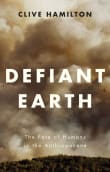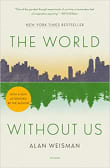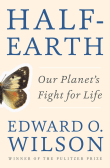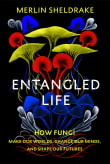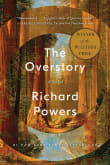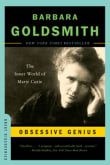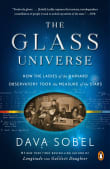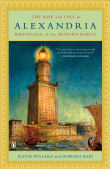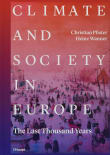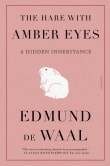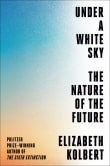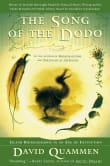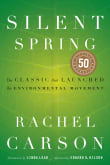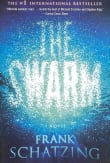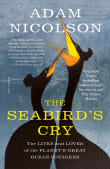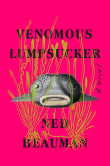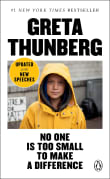The Invention of Nature
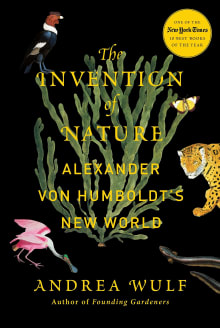
Book description
WINNER OF THE 2015 COSTA BIOGRAPHY AWARD
WINNER OF THE ROYAL SOCIETY SCIENCE BOOK PRIZE 2016
'A thrilling adventure story' Bill Bryson
'Dazzling' Literary Review
'Brilliant' Sunday Express
'Extraordinary and gripping' New Scientist
'A superb biography' The Economist
'An exhilarating armchair voyage' GILES MILTON, Mail on Sunday
Alexander von Humboldt…
Why read it?
15 authors picked The Invention of Nature as one of their favorite books. Why do they recommend it?

: I was enthralled by this fascinating story of the Prussian explorer and naturalist Alexander von Humboldt, born in 1769. Von Humboldt was one of the most famous scientists of his time. Napolean, however, disliked him. As he is largely forgotten today, Wulf describes him as ‘the lost hero of science’. Von Humboldt travelled across North and South America and Russia. Many natural phenomena are named after him, from mountain peaks to rivers and ocean currents. His major work Kosmos (1845-1862) contains his guiding philosophical idea: the interconnectedness of nature. It inspired Charles Darwin. The interconnectedness of all things meant,…

Alexander von Humboldt’s name is synonymous with scientific discovery today–the Humboldt Current, the Humboldt Redwoods State Park, and countless species named for him. Humboldt revolutionized our modern understanding of the natural sciences–geology, biology, meteorology, and much else–with his epic five-year voyage that set off in 1799 and brought him through the Amazon, the Caribbean, and North and South America.
Like Malaspina before him, Humboldt studied not only the flora and fauna of these regions but also their peoples and the political turmoil that was building towards revolution. He met with the leaders of the time–Thomas Jefferson and Simón Bolívar among…
From Larrie's list on voyages of discovery about science, not conquest.

I'll be frank: if you read a book at the beach and a year later you still have lasting memories that resonate within you, that must mean something.
I still remember how Wulf walked me through the revolutionary vision of Humboldt, how he could “see” what nobody else was capable of in his days, and to the naked eye: that everything is interconnected. I again felt dizzy, with a sense of myopia, when thinking about how shortsighted we are in 2024.
We keep missing the plot! If only there were more Humboldts and Wulfs to inspire us as she did!
From Paco's list on we, humans, are not that special.

No one did more to turn exploration into a scientific enterprise than Alexander von Humboldt, the German naturalist whose five-year-long expedition into Latin America turned him into one of the most famous and influential figures of the 19th century.
Wolf brings this amazing figure, now largely forgotten, back to life in her fascinating biography. What I found especially compelling and timely about her account of Humboldt is that it highlights his contributions to the birth of modern environmentalism.
Humboldt’s expansive inquiries into the natural world demonstrated that it has to be understood as a complex, interconnected whole. It’s a lesson…
From Dane's list on exploration and cross-cultural encounters.

This is the story of Alexander von Humboldt and how he influenced our views today about nature. It reveals a grand story hiding in plain sight—a chronicle of one man’s exercise of intellectual freedom that shaped the scientific and political views of Thomas Jefferson, Charles Darwin, Simon Bolivar, and Henry David Thoreau.
From Akshat's list on crash course in our climate choices.

I love this grand biography of a somewhat forgotten man who was one of the most famous figures of his time (second only to Napoleon). After reading this illuminating book, I now view him not only as a great naturalist and explorer but as a visionary whose ideas were prescient—including his anticipation of the ravaging effects of human-induced climate change.
I loved meeting—within the book—Darwin, Goethe, Ernst Haekel (who coined the word ecology), Jefferson, Thoreau, and so many others whom interacted with the great polymath, Humboldt. This book has had a profound influence of my own writing about the natural…
From Scott's list on our human relationship with the natural world.

Even prior to reading this book, I casually considered Alexander von Humboldt to be one of my geographical heroes, a workaholic as addicted to adventure as he was obsessed with advancing our understanding of the planet.
However, Wulf’s book opened my eyes not only to the sheer extent of his contributions to how we view the world, from human-induced climate change to the development of increasingly accurate and informative maps and diagrams but also to his cultural and political significance, influencing politicians and inspiring poets to continue fashioning and representing the planet as they see fit.
In placing the…
From Maxim's list on redefining your understanding of geography.

Germans can be romantic, too, if they set about it in earnest.
Young Alexander von Humboldt didn’t do things by halves. He made his own muscles twitch rather than a dead frog’s. Initially, he used the current from a galvanic cell (which made him faint). He later took up electric eels from Venezuela, caught with the unwilling help of wild horses.
Humboldt spent a large part of his fortune on a five-year journey through Latin America, which catapulted him to fame. The rest of his money went into publishing dozens of volumes relating to his explorations and describing the Cosmos,…
From Karl's list on the poetic side of science.

The author has spent considerable time pursuing and following in the footsteps of Alexander von Humboldt, and we are all the better for it as readers of her wonderful biography and historical account.
This fascinating and influential, but often forgotten, man influenced the great scientists and scholars of the 19th Cent. like no other. Without Humboldt, there would have been no Darwin, by his own admission, and countless other major figures owed their famous predecessor this same debt.
His resurgence in recent years as the Father of Ecology has brought his name to the forefront once more. Wulf’s detailed…

This biography of Alexander von Humboldt is very worthy for a ton of reasons, but Humboldt’s explorations in the Americas between 1799-1804 get him on this list.
Thomas Jefferson called Humboldt “the most scientific man of the age” for good reason: Humboldt is considered the father of ecology, and of the study of the environment. One of the best narrative nonfiction books of recent years.
From Patrick's list on trailblazing explorers in the Americas.
Want books like The Invention of Nature?
Our community of 12,000+ authors has personally recommended 100 books like The Invention of Nature.

